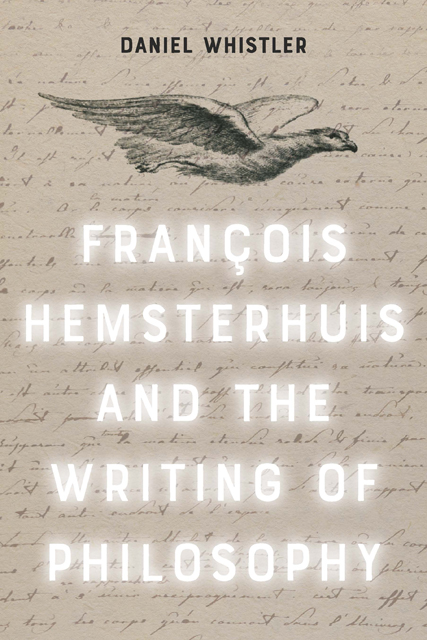Part Three - A History of Organs
Published online by Cambridge University Press: 03 June 2023
Summary
In one of the more provocative judgements on Hemsterhuis in recent years, Wiep van Bunge writes that ‘in general, Hemsterhuis’ attitude to contemporary philosophers is pretty baffling’, that his oeuvre ‘reveals a stunning complacency toward such crucial eighteenth-century authors as Locke, Hume, Voltaire, Diderot and a host of others’ and that, with the exception of Rousseau, Hemsterhuis manifests a complete ‘lack of interest in seventeenth-and eighteenth-century philosophy’ (2018: 174, 176). Van Bunge is right, of course, that Rousseau is one of the most significant, if silent presences in Hemsterhuis’ publications: the dialogues can be read as a response to the Discours sur les sciences et les arts, and Alexis, in particular, is – I will go on to argue – Hemsterhuis’ final reckoning with Rousseau’s narrative of human history in the Discours sur l’origine et les fondements de l’inégalité parmi les hommes. Van Bunge is also right that Hemsterhuis is ‘almost secretive about his sources’ (2018: 180), that there is little explicit conceptual debate with any post-Newtonian philosophy in the published writings. And this is one of the reasons why Hemsterhuis’ intellectual context has traditionally been reduced to the late Dutch Newtonian tradition and the nascent Münster Circle. Nevertheless, I want to contend that such a reduction does miss a number of contemporary debates in which he did intervene; and so, in this part of the book, I want to look beyond these immediate Dutch and German contexts to suggest that Hemsterhuis is a key figure in mid-eighteenth-century discussions of organology prevalent in Paris and Geneva. And this entails focusing, in Chapter Four, on Hemsterhuis’ long-running conversations with Charles Bonnet and Denis Diderot.
Hemsterhuis might be more influenced by other eighteenth-century thinkers (’s Gravesande, Caylus, even Montesquieu) and he certainly does not think of Bonnet and Diderot as his ‘teachers and masters’, as he does Socrates and Newton; yet the imprint of their thinking is discernible in the Hemsterhuisian corpus, and my conjecture is that Hemsterhuis’ history of organs – the spine of his philosophical project – is best understood precisely as a response to Bonnet’s and Diderot’s own organologies. Hemsterhuis came to know of Diderot’s mathematical works as early as 1754 (see Petry 1985: 219, Hammacher 1971: 48) and he continued to esteem Diderot, particularly as a dramatist (e.g., B 1.124, 158, 5.96, 294).
- Type
- Chapter
- Information
- Francois Hemsterhuis and the Writing of Philosophy , pp. 99 - 104Publisher: Edinburgh University PressPrint publication year: 2022



